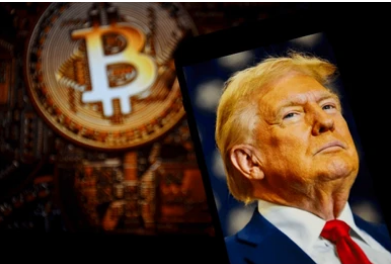Cryptocurrency has transformed finance in the past decade, offering decentralized, borderless, and programmable digital assets. Meanwhile, artificial intelligence (AI) has revolutionized industries from healthcare to logistics, enabling smarter decision-making, predictive analytics, and automation.
Now, these two technologies are converging. AI is beginning to reshape the cryptocurrency landscape, impacting trading, security, blockchain efficiency, and even the creation of new digital assets. As we look toward the future, understanding the role of AI in cryptocurrency is critical for investors, developers, and businesses alike.
How AI and Cryptocurrency Intersect
AI and crypto intersect in several key ways:
- Market Analysis and Trading – AI algorithms can analyze vast amounts of historical and real-time data to predict price trends, detect patterns, and automate trading strategies.
- Fraud Detection and Security – AI enhances blockchain security by identifying suspicious activity and protecting against hacks, phishing, and fraudulent transactions.
- Smart Contract Optimization – AI can audit, test, and even automate smart contract functions, reducing errors and improving efficiency.
- Sentiment Analysis – AI can monitor social media, news, and forums to gauge market sentiment, helping traders make informed decisions.
- Algorithmic Asset Management – AI-driven portfolios can dynamically adjust cryptocurrency allocations based on risk and performance metrics.
By combining AI’s analytical power with blockchain’s transparency, cryptocurrencies become more efficient, secure, and predictive.
AI in Crypto Trading
Trading cryptocurrency is notoriously volatile, with prices shifting dramatically in minutes. AI is changing this landscape:
- Predictive Models – Machine learning algorithms analyze price history, trading volumes, and market sentiment to forecast trends.
- Automated Trading Bots – AI-driven bots execute trades instantly based on predefined strategies, eliminating human emotions like fear and greed.
- Risk Management – AI evaluates volatility and exposure, optimizing portfolio allocation to minimize losses.
For traders, AI offers a significant edge in speed, accuracy, and decision-making, especially in 24/7 crypto markets.
Enhancing Security and Fraud Prevention
Blockchain is secure by design, but cryptocurrency exchanges and wallets are frequent targets for hackers. AI enhances security by:
- Detecting suspicious transactions and potential hacks in real-time.
- Identifying patterns of money laundering or fraudulent activity.
- Automating threat response, reducing human error in incident management.
AI and blockchain together can create a more resilient cryptocurrency ecosystem, boosting user trust.
Optimizing Smart Contracts and Blockchain Networks
Smart contracts are self-executing agreements stored on blockchain, but they can be prone to errors or inefficiencies. AI contributes by:
- Auditing Contracts – Detecting vulnerabilities before deployment.
- Automating Adjustments – Dynamically improving contract logic based on usage patterns.
- Predicting Network Congestion – AI can optimize transaction processing, reducing fees and delays.
By integrating AI, blockchains can become more efficient, scalable, and error-resistant.
AI-Generated Cryptocurrencies and Tokens
Some innovative projects are experimenting with AI-generated digital assets. AI can:
- Design NFTs, virtual art, or gaming assets autonomously.
- Create algorithmic tokens with dynamic supply based on market conditions.
- Develop AI-driven decentralized autonomous organizations (DAOs) that make autonomous decisions based on real-time data.
These developments hint at a future where AI and crypto co-create value, blending technology and creativity.
Challenges of AI in Cryptocurrency
While promising, the integration of AI and crypto faces challenges:
- Data Quality – AI requires reliable data; inaccurate or manipulated data can lead to poor predictions.
- Regulatory Uncertainty – AI-driven trading and decentralized finance (DeFi) platforms may face legal hurdles.
- Security Risks – AI systems themselves can be hacked or manipulated.
- Complexity – Deploying AI in decentralized networks requires advanced technical expertise.
- Bias and Ethics – Poorly designed AI could favor certain users or amplify market manipulation.
The Future of AI in Cryptocurrency
The future of AI and cryptocurrency is closely intertwined:
- Decentralized AI – AI models running on blockchain networks to enhance transparency and collaboration.
- Predictive Economics – AI analyzing global economic data to anticipate crypto market shifts.
- Automated Financial Systems – Entire crypto portfolios, loans, and investment strategies managed autonomously by AI.
- Interoperable Metaverse Economies – AI managing virtual assets and currencies in connected metaverse ecosystems.
As AI technology matures, it may reshape trading, security, governance, and value creation across all aspects of cryptocurrency.
Conclusion: A Symbiotic Future
AI is not just a tool for cryptocurrency—it is becoming a partner in its evolution. By enhancing trading efficiency, increasing security, and optimizing blockchain networks, AI empowers cryptocurrencies to reach new levels of sophistication and usability.
The combination of AI and crypto represents a future where decentralized finance, automated trading, and intelligent digital assets converge, creating opportunities for investors, developers, and users alike.
For anyone interested in the digital economy, understanding this intersection is no longer optional—it is essential.
